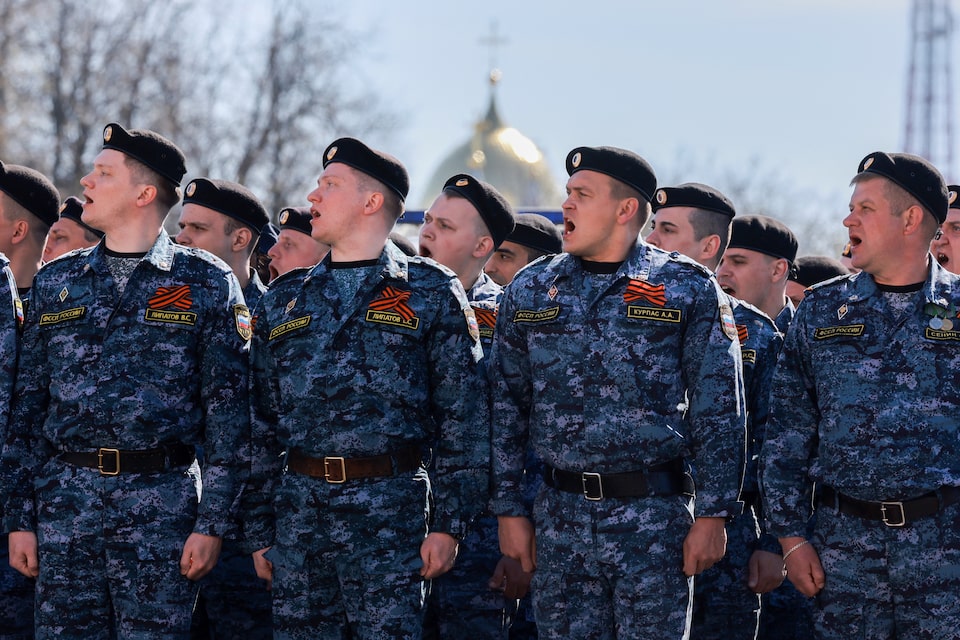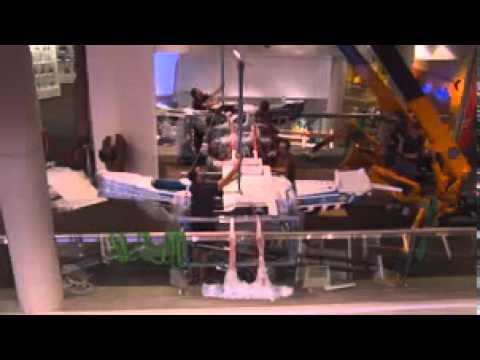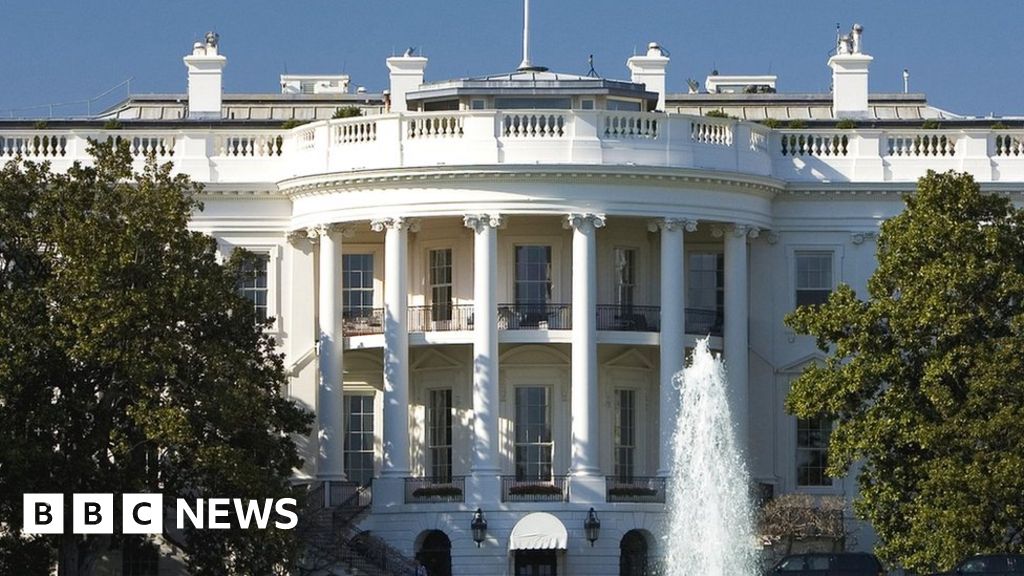Understanding Russia's Military Strategy And Its Impact On Europe

Table of Contents
Key Pillars of Russia's Military Strategy
Russia's military strategy rests on several interconnected pillars, each contributing to its overall geopolitical ambitions and influence.
Nuclear Deterrence
Nuclear weapons form a cornerstone of Russia's defense and foreign policy. The country's nuclear doctrine emphasizes the deterrent effect of its arsenal, aiming to prevent major conflict through the credible threat of devastating retaliation. This is reflected in:
- Modernization of nuclear arsenal: Significant investment in modernizing its nuclear forces, including the development and deployment of new delivery systems like hypersonic missiles.
- Deployment of new weapons systems: The introduction of advanced nuclear weapons capabilities challenges existing strategic balances and necessitates reassessment of deterrence strategies by other nuclear powers.
- Nuclear doctrine and escalation thresholds: Russia's evolving nuclear doctrine remains opaque, leading to uncertainty regarding its escalation thresholds and the conditions under which it might use nuclear weapons. Understanding Russia's strategic nuclear forces is vital for international security.
Conventional Warfare Capabilities
Russia possesses substantial conventional military capabilities, although their effectiveness is a subject of ongoing debate. Its armed forces comprise a large army, a significant navy focused on near-seas operations, and an air force with a mix of modern and older equipment.
- Strengths and weaknesses of the Russian military: While possessing substantial manpower and certain advanced weapon systems, the Russian military has also demonstrated vulnerabilities in areas like logistics, command and control, and effective combined arms operations.
- Recent military exercises: Large-scale military exercises, often involving multiple branches of the armed forces, showcase Russia's military capabilities and its readiness to project power.
- Technological advancements and limitations: Russia has made progress in areas like hypersonic weapons and electronic warfare, but it still lags behind the West in certain key technological areas like precision-guided munitions and advanced sensor systems. Military modernization efforts are ongoing but uneven.
Hybrid Warfare Tactics
A defining feature of Russia's military strategy is its adept use of hybrid warfare. This encompasses a blend of conventional military actions with unconventional methods, maximizing impact while minimizing direct military confrontation. Key elements include:
- Information warfare: Russia utilizes sophisticated information operations to spread disinformation, manipulate public opinion, and sow discord both domestically and internationally.
- Cyberattacks: Cyberattacks are employed to disrupt critical infrastructure, steal information, and undermine confidence in institutions. Cybersecurity is a growing concern in response to these tactics.
- Disinformation campaigns: The deliberate spread of false or misleading information aims to influence perceptions and create confusion, undermining trust in established narratives and institutions.
- Use of proxy forces: Russia often utilizes proxy forces and mercenaries to achieve its objectives without direct military involvement, reducing risk and plausible deniability.
- Economic coercion: The use of energy resources and economic leverage to exert pressure on other nations is a significant element of Russia's hybrid warfare toolkit. Asymmetric warfare tactics necessitate a diverse response.
Geopolitical Implications for Europe
Russia's military strategy has profound geopolitical implications for Europe, impacting regional stability, security alliances, and economic relations.
Impact on NATO
Russia's military actions have spurred a significant strengthening of NATO's defense posture. This includes:
- Increased military spending by NATO members: Many NATO members have increased defense spending in response to perceived threats from Russia.
- Enhanced military exercises: Joint military exercises among NATO members have become more frequent and larger in scale, demonstrating the alliance's readiness to respond to potential aggression.
- Deployment of troops to Eastern Europe: NATO has deployed troops and equipment to Eastern European member states bordering Russia, reinforcing the alliance's eastern flank. Collective defense is a cornerstone of the alliance's response.
Regional Conflicts and Instability
Russia's actions have fueled instability in several regions bordering Europe, creating significant security challenges:
- Ukraine conflict: The ongoing conflict in Ukraine represents a major flashpoint, illustrating Russia's willingness to use military force to achieve its geopolitical goals.
- Influence operations in the Balkans: Russia has sought to increase its influence in the Balkans, exploiting existing ethnic tensions and undermining regional stability.
- Involvement in the Syrian civil war: Russia's military intervention in Syria demonstrated its projection of power and its willingness to support authoritarian regimes. Regional security is directly impacted by these interventions.
Energy Security and Economic Leverage
Russia's vast energy resources provide significant economic leverage and influence over European nations.
- Gas pipelines: Russia's control over major gas pipelines to Europe gives it considerable influence over energy markets and the economies of European countries.
- Energy dependency of European nations: Many European nations are heavily dependent on Russian energy supplies, making them vulnerable to economic pressure.
- Sanctions and counter-sanctions: The imposition of sanctions by the West and counter-sanctions by Russia have created a complex and dynamic economic environment. Energy dependence highlights the need for diversification.
Assessing the Future of Russia's Military Strategy
Predicting the future of Russia's military strategy requires considering ongoing developments and potential responses.
Ongoing Military Modernization
Russia continues to invest heavily in military modernization, aiming to enhance its conventional and nuclear capabilities.
- Investment in new technologies: Continued investment in advanced technologies like hypersonic weapons and artificial intelligence will likely shape future military capabilities.
- Development of advanced weapons systems: The development and deployment of new weapons systems will affect the strategic balance of power and necessitate adaptation by other countries.
- Potential future capabilities: Future capabilities might include more sophisticated cyber warfare tools, advanced autonomous systems, and further improvements in nuclear delivery systems. Military technology advancements are a crucial aspect of future assessments.
Response from Europe and the West
Europe and Western nations are adapting their security policies to address the challenges posed by Russia's military strategy.
- Strengthening military alliances: NATO and other alliances are strengthening their capabilities and cooperation to deter potential aggression.
- Increased defense spending: Many countries are increasing defense spending to enhance their military capabilities and readiness.
- Sanctions and diplomatic efforts: A combination of sanctions and diplomatic initiatives is being used to pressure Russia and encourage a change in its behavior. International relations will significantly influence future responses.
Conclusion
Russia's military strategy is multifaceted, encompassing nuclear deterrence, substantial conventional forces, and sophisticated hybrid warfare tactics. This strategy has significant implications for European security, fueling regional conflicts, impacting energy markets, and driving increased military spending among NATO members. Understanding Russia's military strategy is critical for navigating the evolving geopolitical landscape. To stay informed, further research into Russia's military doctrine, technological advancements, and geopolitical maneuvers is essential. Follow credible news sources and engage in informed discussions about the ongoing challenges posed by Russia's military actions and the necessary adaptation by European nations. The future of European security is inextricably linked to a continued understanding of Russia's evolving military strategy and its implications for the region.

Featured Posts
-
 Ukraine War North Koreas First Acknowledged Troop Deployment To Russia
Apr 29, 2025
Ukraine War North Koreas First Acknowledged Troop Deployment To Russia
Apr 29, 2025 -
 Are We Normalizing Disaster The Case Of Betting On Los Angeles Wildfires
Apr 29, 2025
Are We Normalizing Disaster The Case Of Betting On Los Angeles Wildfires
Apr 29, 2025 -
 Canoe Awakening Details From The Culture Departments Annual Celebration
Apr 29, 2025
Canoe Awakening Details From The Culture Departments Annual Celebration
Apr 29, 2025 -
 Lakers Vs Timberwolves Anthony Edwards Injury And Game Time Decision
Apr 29, 2025
Lakers Vs Timberwolves Anthony Edwards Injury And Game Time Decision
Apr 29, 2025 -
 Hollywood Production Halts As Sag Aftra Joins Writers Strike
Apr 29, 2025
Hollywood Production Halts As Sag Aftra Joins Writers Strike
Apr 29, 2025
Latest Posts
-
 White House Cocaine Found Secret Service Concludes Inquiry
May 12, 2025
White House Cocaine Found Secret Service Concludes Inquiry
May 12, 2025 -
 The Most Emotional Rocky Movie According To Sylvester Stallone
May 12, 2025
The Most Emotional Rocky Movie According To Sylvester Stallone
May 12, 2025 -
 Which Rocky Movie Touches Sylvester Stallone The Most
May 12, 2025
Which Rocky Movie Touches Sylvester Stallone The Most
May 12, 2025 -
 Stallone Reveals His Top Rocky Movie A Touching Choice
May 12, 2025
Stallone Reveals His Top Rocky Movie A Touching Choice
May 12, 2025 -
 Sylvester Stallone Picks His Most Emotional Rocky Film
May 12, 2025
Sylvester Stallone Picks His Most Emotional Rocky Film
May 12, 2025
